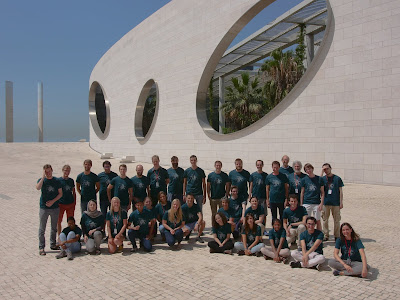Studying Genetic Engineering and Biotechnology in Bangladesh: A crisis of identity?
It has been quite a few years since I started my study at Dhaka University. But I often ask myself: was it worth it to do this degree? The aim of an undergraduate degree should be to create an educational foundation for a future career. But I can not say my degree achieves that.
When I started college, I had the plan to train myself as a geneticist. On an admission flyer of Dhaka University, I saw a list of degrees that were being offered. That list had Genetics in it. So I decided to inquire about the application process. But soon I realized the title of the course had changed. The title of the degree was now BSc in Genetic Engineering and Biotechnology. When I talked to some of the faculty members of the Department of Genetic Engineering and Biotechnology, I came to know that the department was mainly teaching Molecular Biology to train the students as Biotechnologists (and hence the name)!
At this point, I found myself in a very confused state. I was in doubt about what exact discipline I wanted to study. I was dumbfounded by three big terms: Genetics, Genetic Engineering, Molecular Biology, and Biotechnology. To overcome this confusion, I decided to do some research.
I did some internet digging on the definition of these terms. Below I list my findings.
Biotechnology is the application of biological knowledge in the industry. Biotechnologists use the techniques and methods invented by biologists to develop a product or service. Examples of such products may include drugs, diagnostics, vaccines, or even food like cheese and yogurt. We should rarely expect biotechnologists to engage in basic research of biological disciplines such as biochemistry, microbiology, molecular biology, zoology, botany, and so on.
Molecular Biology, on the other hand, is the biology of biomolecules such as DNA, RNA, Proteins, Carbohydrates, and Lipids. A molecular biologist explains cellular events using molecules. Some of the most frequently used molecular biology techniques are the isolation, detection, identification, and tracking of biomolecules in cells and outside cells.
Genetics, in its earlier days, mainly involved the study of the relationship between genes and traits. But with the advent of DNA sequencing technology, genetics has evolved to become mostly about the analysis of DNA sequence and the role of this sequence in controlling the traits. Techniques used by a geneticist are very similar to the ones used by molecular biologists.
Genetic engineering is not a discipline, rather, it is a technique to engineer the genes or DNA of an organism to make it express some desirable traits. Through the use of genetic engineering, it is possible to develop recombinant microorganisms, genetically modified plants, and transgenic animals.
Therefore, the title genetic engineering and biotechnology should imply the use of recombinant DNA technology in the large-scale production of foods, industrial products, or treatment options. That's not too bad! Eventually, I did pursue the degree. The reason to chose it over other degrees was the quality of research of some of the faculty members.
Molecular Biology, on the other hand, is the biology of biomolecules such as DNA, RNA, Proteins, Carbohydrates, and Lipids. A molecular biologist explains cellular events using molecules. Some of the most frequently used molecular biology techniques are the isolation, detection, identification, and tracking of biomolecules in cells and outside cells.
Genetics, in its earlier days, mainly involved the study of the relationship between genes and traits. But with the advent of DNA sequencing technology, genetics has evolved to become mostly about the analysis of DNA sequence and the role of this sequence in controlling the traits. Techniques used by a geneticist are very similar to the ones used by molecular biologists.
Genetic engineering is not a discipline, rather, it is a technique to engineer the genes or DNA of an organism to make it express some desirable traits. Through the use of genetic engineering, it is possible to develop recombinant microorganisms, genetically modified plants, and transgenic animals.
Therefore, the title genetic engineering and biotechnology should imply the use of recombinant DNA technology in the large-scale production of foods, industrial products, or treatment options. That's not too bad! Eventually, I did pursue the degree. The reason to chose it over other degrees was the quality of research of some of the faculty members.
But does it really make sense to offer an entire undergraduate program on genetic engineering? Is it possible for a person to have a sensible career by specializing in methods of engineering biological organisms? Maybe it is possible in R&D and in the emerging biotech industries. However, there is already a degree in molecular biology at Dhaka University which offers training on genetically modified organisms. It makes very little sense to create a separate discipline for genetic engineers just so they can specialize in the techniques of recombinant DNA. These two departments should really consider merging together.
It is high time, the genetic engineers and biotechnologists in Bangladesh, started doing some soul searching and asked themselves whether they wanted to brand themselves as genetic engineers or something else - biotechnologists or molecular biologists wouldn't be a bad idea. It would give them a much broader career prospect.
It is high time, the genetic engineers and biotechnologists in Bangladesh, started doing some soul searching and asked themselves whether they wanted to brand themselves as genetic engineers or something else - biotechnologists or molecular biologists wouldn't be a bad idea. It would give them a much broader career prospect.

